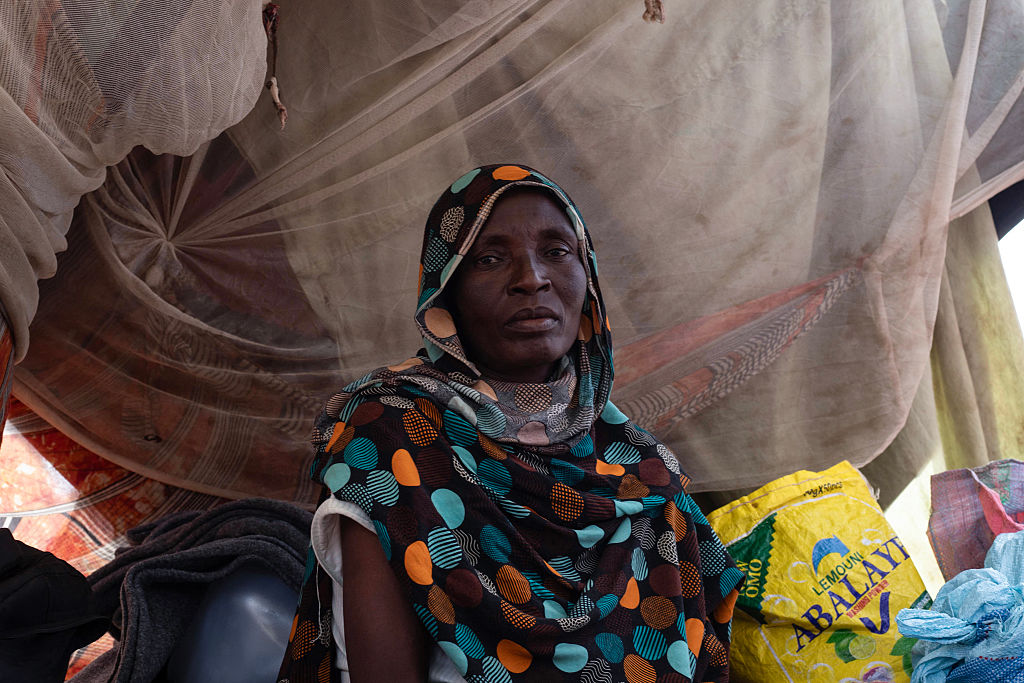An estimated 200,000 civilians are unaccounted for in El Fasher, Sudan. They fled a city under siege, yet never arrived at safety. Only a few thousand have reached humanitarian reception centers, including the International Rescue Committee’s (IRC).
[time-brightcove not-tgx=”true”]
Where are the rest? And will they survive?The absence of answers should shake the conscience of the world.
This is not a theoretical concern. Testimonies from families who did escape tell IRC staff, 1000 across the country, about bodies scattered along the roads, children separated from parents, and targeted attacks on civilians. Humanitarian staff have confirmed the worst: unaccompanied children arriving traumatized, alone, and starving. With safe routes blocked, many were likely killed or captured. The IRC, alongside our partners, is doing all we can to assist those who make it out alive. But our most urgent fear remains: what has happened to those who haven’t?
Almost 20 years since Darfur became the epicenter of one of the most devastating humanitarian crises of the 21st century, the region is once again in the grip of violence. Conflict reignited across Sudan in April 2023, displacing more than 12 million people and plunging the country into chaos. And today, the world risks another chapter of horror in Sudan as violence engulfs El Fasher.
El Fasher is not just a humanitarian emergency. It is the face of the broader collapse of international diplomacy in the post-WWII era. Sudan embodies what the IRC calls the “new world disorder”—a conflict sponsored by a growing cast of regional and global rivals, driven by transactional diplomacy and economic greed, and sustained by impunity. Humanitarian norms are trampled, and civilians pay the price.
Both the Sudanese Armed Forces (SAF) and the Rapid Support Forces (RSF) are fighting not just for control of territory, but for economic resources that provide both revenue and leverage. The conflict is being funded, directly or indirectly, by outside powers seeking to advance their own influence. As rival governments emerge and the country fragments, access to aid has been weaponized and humanitarian workers killed with impunity. Sudan has become a place where civilians are hunted, not helped.
And now famine is taking hold. The latest data confirms catastrophic hunger levels across Darfur. Nearly 400,000 people are facing starvation, as defined by Integrated Food Security Phase Classification’s Phase 5 threshold. In addition, some 6.3 million people at emergency hunger levels (Phase 4), and many of those fleeing El Fasher are already arriving malnourished. Unaccompanied children are among the most vulnerable, and thousands have been separated from their families. The international response, however, remains fragmented and dangerously slow.
The Security Council passed Resolution 2736 last year, calling for an immediate halt to fighting and full, rapid and safe humanitarian access. But those asks remain unfulfilled. Words have not translated into safety. The 200,000 missing from El Fasher stand as a harrowing testament to that failure.
How to address the crisis in Sudan
We cannot wait for diplomatic consensus to emerge while people starve or die. Urgent steps must be taken now.
First, we need safe passage. Civilians must be allowed to flee El Fasher without fear of attack, extortion, or forced recruitment. This is a basic requirement of international law and the most immediate need on the ground.
Second, we need a full-scale humanitarian response. That means unimpeded access to those in need, wherever they are, including by empowering local responders and ensuring the UN has the mandate and resources—the humanitarian appeal for Sudan is currently less than 30% funded—to scale up its presence.
Third, we need sustained diplomatic pressure. The U.S., working with Saudi Arabia, Egypt, and the UAE in what is known as the Quad, has made progress. A proposed three month humanitarian truce followed by a credible nine month political process is a necessary lifeline. But such a plan cannot succeed unless civilians are protected now, and access is no longer used as a bargaining chip.
Fourth, we need to stop the flow of arms. Too many regional actors are fueling this war by supplying weapons to both sides. At a minimum, the Quad should initiate a conversation about arms flows and use its influence to reduce the incentives for continued violence. Behind every disappearing family in El Fasher is a supply chain that makes such atrocities possible.
The crisis in Sudan will reverberate far beyond its borders. Displacement is spilling over into Chad, South Sudan, and Ethiopia. Food insecurity will rise across the region. And the danger is that the signal to armed actors globally will be clear: you can kill civilians with impunity if the world isn’t watching.
But the world is watching. We see children arriving in Tawila without their mothers. We hear from IRC staff risking their lives to deliver aid. We read the names of towns where atrocities have taken place before. And we know what happens when we look away.
Sudan is a test: of our humanitarian values, and of our diplomatic resolve. Every hour counts. The lives of hundreds of thousands hang in the balance.
We must not fail them—again.

